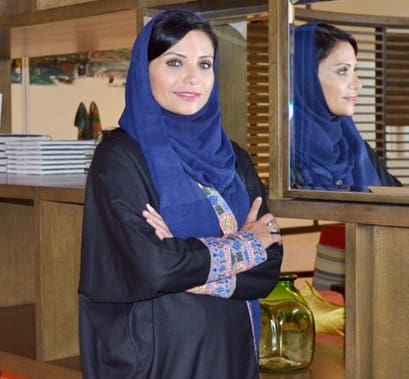Member Spotlight: Rozana Al Tayyar and The Miracles of Mediation
Rozana Al Tayyar, Founder of The Mediation Gateway, was interviewed by Florence de Vesvrotte, MBBI Writer, on the challenges in bringing mediation to Saudi Arabia—and the rewards in succeeding to do so.

Rozana is an inspiration in showing that walls can be moved if there is enough passion and determination. In Saudi Arabia, national practice is sealed off from mediation and conflict is managed through familial methods, but Rozana has managed to import the practice of mediation into her country. She has actively raised awareness about it, convinced law firms of its usefulness, and developed a practice adapted to the traditional approaches to conflict in Saudi Arabia.
I asked her first, how she got involved with mediation in the first place: ‘My background is in corporate banking, I worked for years for HSBC where, as a relationship manager, I handled various accounts and clients. The clients had so many disputes that I was mostly doing conflict resolution. Most of the clients were family businesses and suffered severely from internal disputes. It became obvious to me that banks of that type needed experts in that field. I decided to fill that gap, leaving the organisation, training in the UK, and setting up The Mediation Gateway on my return to Saudi Arabia’.
Speaking about the challenges of spreading the use in mediation in her country, Rozana explained that it was impossible to find the right translation for the term “mediation” in Arabic, when she started her organization. Now, Saudi Arabian law is in the process of recognizing mediation as an official channel for dispute resolution. She decided to actively advocate for it, starting in schools. She brought a United Nations official to speak at Jeddah Prep and Grammar School on Peace Day—a success as people were impressed to see a woman talking about dialogue. The presentation had a substantial impact and marked the beginning of a conversation, within that generation of students, on mediation. Roziana followed up these efforts by giving speeches at various universities and networking with lawyers who would, little by little, become convinced of the value of mediation and forward her cases for her to help with.
In a recent, emotional, case between the top management and a female executive in a multinational company, at a time when it was not an easy decision for companies in Saudi Arabia to fire Saudi employees, Rozana managed to allow the parties to sort out an agreement. After speaking to them separately she facilitated the extraction of more information and understanding between the parties. Similarly, in a recent dispute where a manager of a small business had a disagreement with his supplier, and discussions had reached a dead end, she was called to facilitate the dialogue between them and help them fully understand each other’s positions. In this case, inviting associates to contribute to the discussion enhanced collaboration and the possibility to find common ground.
Rozana came across MBBI at the World Mediation Summit in Madrid in 2016. She was thrilled by the presentation of MBBI’s speaker and decided to sign up. ‘MBBI brings a lot of credibility to its members: its reputation precedes it. We need MBBI to encourage other mediators to take part and to raise awareness of our work. I believe it is a great boost for mediators’. Rozana wishes there was a chapter in the Middle East, as she laments the lack of mediators in the region.
In 2017 she hopes to see advocacy for mediation continue to grow, and to do more work related to the Syria crisis, as she is starting to collaborate with the International Federation of Red Cross and Red Crescent Societies (IFRC). She is confident about her success: ‘To your core, you need to believe in mediation, from head to toe— your character and attitude in your daily life should be a reflection of this’.
Her optimism is contagious.
